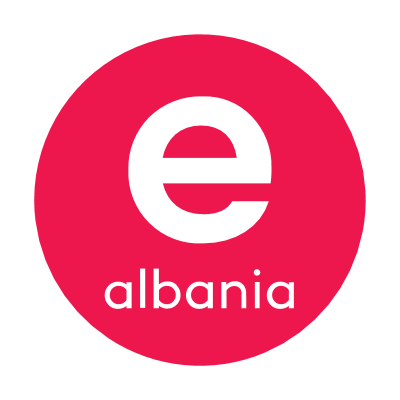27 May, Brussels
Dear Co-chairs Mazzeo and Llatja,
Distinguished Members of the European Committee of the Regions,
Representatives of Local and Regional Authorities,
Mayors from Albania, të dashur të gjithë
Ladies and Gentlemen, here and those online,
I do not think there have ever been so many Albanians let alone Albanian mayors in this room.
It is a real honour and personal privilege to be here today at the inaugural meeting of the Joint Consultative Committee between the Republic of Albania and the European Committee of the Regions.
We have been waiting for this day, which marks not just the launch of a formal mechanism of cooperation between the CoR and Albania, but also the symbolic and practical beginning of a stronger, more structured partnership between the people of Albania and the wider European family, especially through the essential lens of local and regional governance.
This Committee is born out of a shared belief: that Europe is strongest when its regions are resilient, its municipalities are empowered, and its citizens are engaged.
As such, we see this body as a crucial platform—one that brings our institutions closer together, but more importantly, brings Europe closer to its citizens.
In Albania, as I guess, in many other countries on the path to European Union membership, we have a tendency to focus on the most visible part of the development drive : the work of the central institutions, the parliamentary debates and legislative process on the decisions of the government.
Yet, in reality, local and regional authorities are at the forefront of democratic transformation. They are the ones who turn policy into practice, who deliver public services, who navigate the everyday challenges and opportunities of our societies.
Often considered as secondary actors in the integration process, they are in fact essential drivers. They are best placed to promote inclusive growth, to respond to local needs, and to uphold the principles of transparency, accountability, and citizen participation.
And let’s not forget, close to 70% of the EU acquis concerns local government.
Over the past decade, Albania has undergone a comprehensive decentralization reform. We have consolidated municipalities, streamlined responsibilities, and increased fiscal autonomy at the local level.
We have invested in capacity building and governance standards to ensure that our cities, towns, and regions are ready not only to serve their citizens better but also to align with European standards.
We know that we can and must do more. That is why we view this Joint Consultative Committee not as a destination, not a box checked in our commitments book, but as a beginning, an important forum where we can learn, exchange, support, and grow together.
Albania’s EU integration is a national goal, our top priority, embraced by an overwhelming majority of our citizens, as Antonia rightly mentioned.
EU integration is no longer an issue of a few and it is clear every day that it cannot be achieved through central government action alone. It requires broad and inclusive ownership—by parliaments, civil society, academia, youth, business communities, and, critically, by local and regional authorities.
This Committee embodies that multi-level dimension. It will allow Albanian municipalities to engage directly with European peers, to participate in dialogues that matter, and to shape the trajectory of integration from the ground up.
It will also help us accelerate the implementation of the EU acquis in areas such as environmental protection, public procurement, energy transition, digital transformation, and regional development—fields where local authorities have growing competencies and responsibilities.
Through this platform, Albanian local leaders can benefit from the expertise and experiences of their counterparts across the Union. They can adapt proven solutions to their own realities and avoid costly missteps. In turn, they can also share lessons learned from our context—especially in managing transition, improving resilience, and navigating challenges such as rural depopulation or urban growth.
The global and regional challenges we face today—from climate change to migration, from geopolitical instability to economic inequality—do not respect borders or administrative hierarchies. Their impact is most keenly felt at the local level, where authorities are expected to act swiftly, fairly, and efficiently, often with limited resources.
The COVID-19 pandemic, for one, was a stark reminder of this reality.
That is why we must invest not only in the capacities of local governments but also in the resilience of local communities. That is why solidarity must extend beyond national capitals and reach our towns, villages, and regions.
The JCC can be a vector of that solidarity. By encouraging cross-border cooperation, sharing innovation, and promoting cohesion, it can help bridge development gaps and bring real added value to citizens on both sides.
This is why it should not be seen simply as a technical body, but as a dynamic space for dialogue, creativity, and inclusion :
A forum where young local leaders can be heard;
Where green and digital transitions are supported as concrete, community-driven projects;
Where the voices of rural areas and remote regions carry equal weight to those of urban centers;
A space where Albanian and European representatives co-create new solutions—whether for efficient waste management in coastal towns, for inclusive urban mobility in growing cities, or for revitalizing remote mountain regions – like the one I come from.
We should never forget: our citizens measure progress not in policy statements, but in clean streets, safe schools, reliable transport, accessible healthcare, and digital services that work.
That is where local government delivers. That is where Europe must be felt.
Let me conclude by thanking the European Committee of the Regions for its unwavering support and partnership.
We, Albanians are seeking our rightful and deserved place in Europe. We are doing our part. But we know we cannot do it alone, we can only achieve it together, through close cooperation, mutual respect, and solidarity at every level of governance.
Europe is not only a destination, but a collective project we build every day, in every region, and with every citizen.
Thank you.





